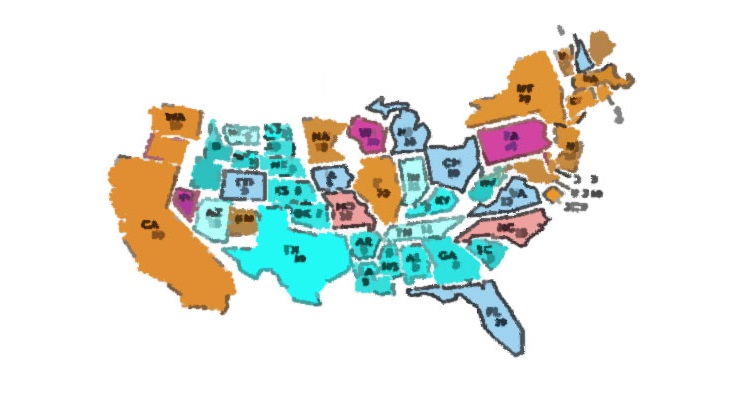 Rick Hasen had this information in Election Law Blog. Here is an excerpt:
Rick Hasen had this information in Election Law Blog. Here is an excerpt:
The following is a guest post from Mike Parsons (Senior Legal Fellow at FairVote and Program Affiliate Scholar at NYU Law):
Momentum to amend the Electoral Count Act is building across the ideological spectrum. And there is no shortage of good ideas on how to clarify the famously opaque law. For these reforms to have an enduring impact, they must be able to hold up under a broad range of conditions—with different parties controlling different pieces of the constitutional machinery at different times—and in an environment where trust in institutions is low and often tied to which party controls the institution in question.
Already, the risks posed by 2024 are shaping up to be different than 2020. After the 2020 elections, state officials held the line and federal lawmakers raised baseless objections to legitimate state results. In 2024, the opposite may well be true, with local and state actors leveraging their powers to tilt the count towards a desired result or state legislators attempting to “reclaim” their power to appoint electors directly after election day in the face of alleged “irregularities.” In other words, reforms that are vital to protect against a resurgent 2020 threat—such as limiting congressional objections or clarifying the role of the Vice President—may not anticipate the full range of threats emerging ahead of 2024.
The challenge is to design a system that is credible across conflicting constituencies, stable as political power shifts from election to election, flexible in response to a variety of pressures, resistant to false or unsubstantiated narratives, and minimally susceptible to electoral pressures. One solution? Acknowledge the role that courts already play in our electoral process and prepare them to play that role more effectively in response to the foreseeable challenges ahead. Courts performed admirably in the face of meritless lawsuits challenging the 2020 results, and many current democracy policy proposals (including ECA reform) contemplate courts playing an even greater part in future elections. But if we’re going to count on the courts, we need to strengthen them so they can better navigate the unique sensitivities that arise in the electoral context.
Read the full guest post here.
Leave a Reply